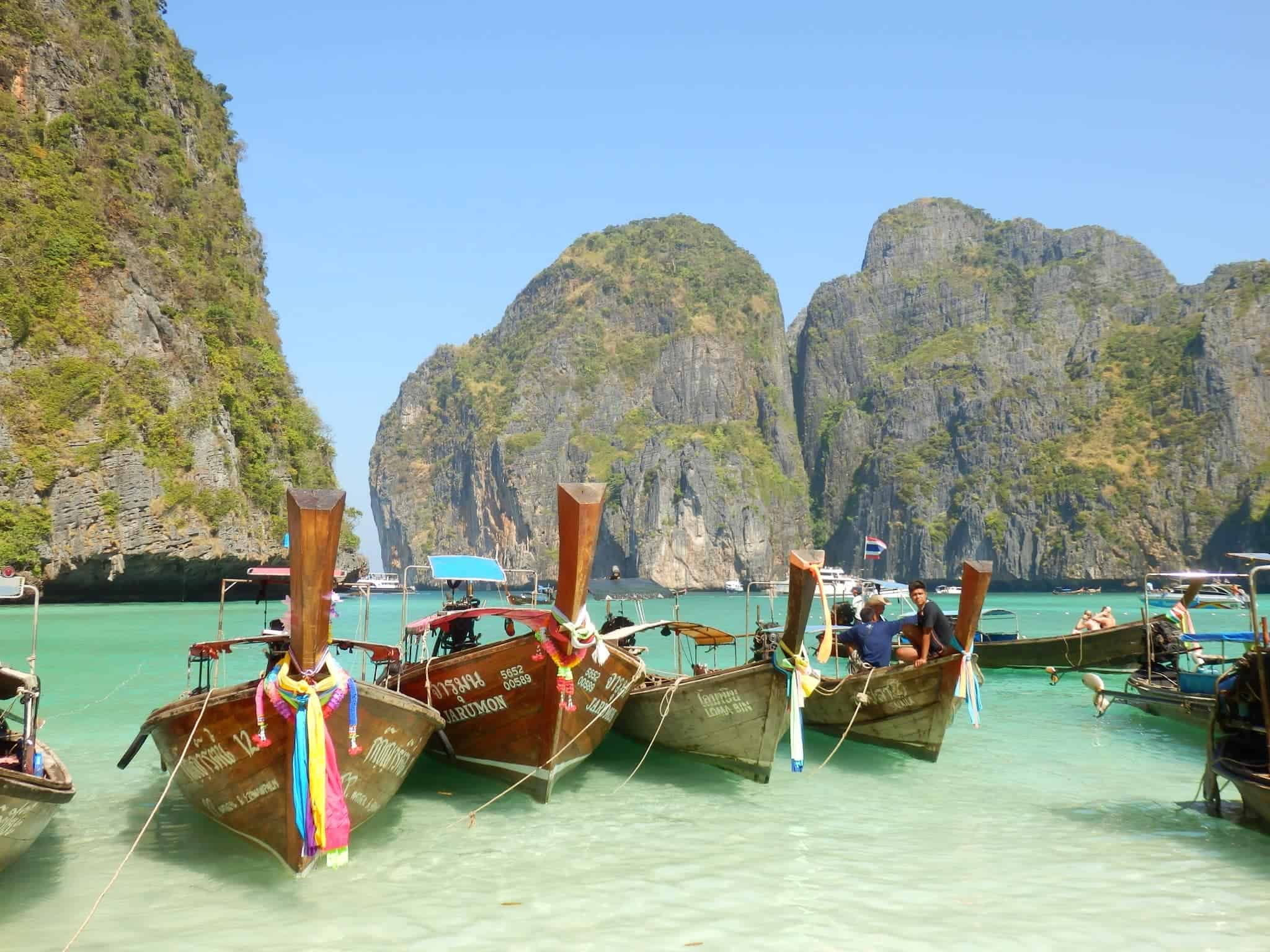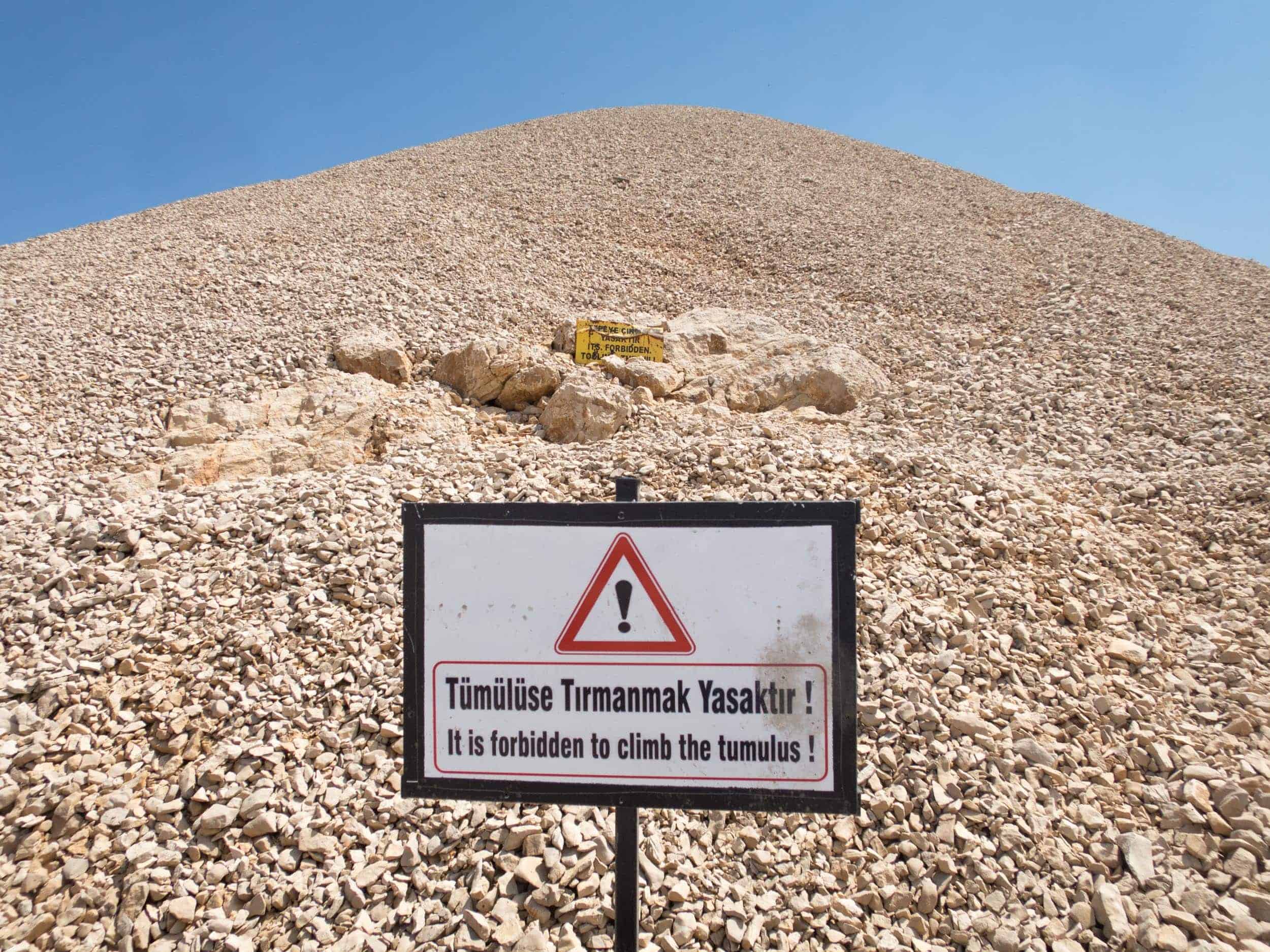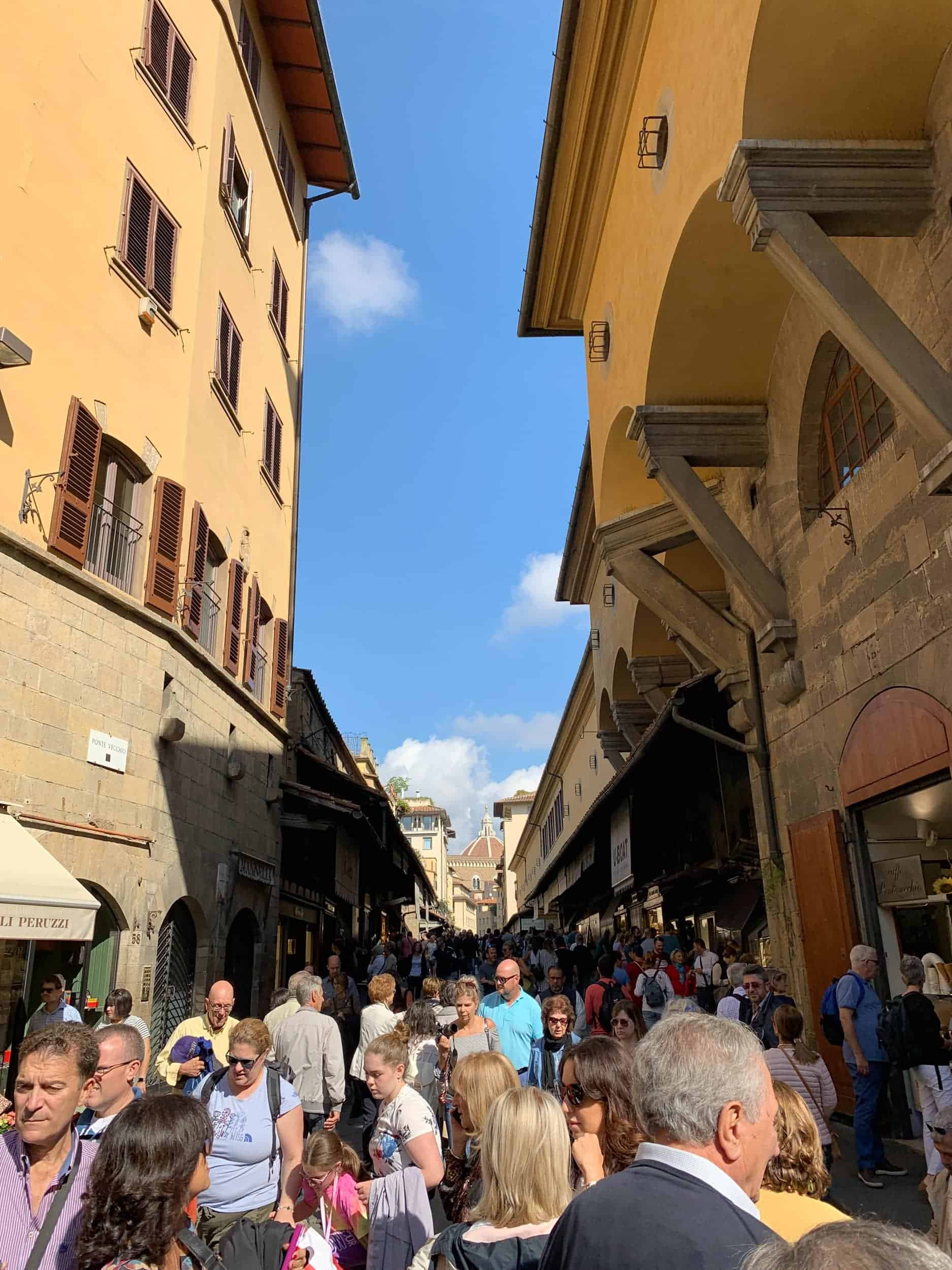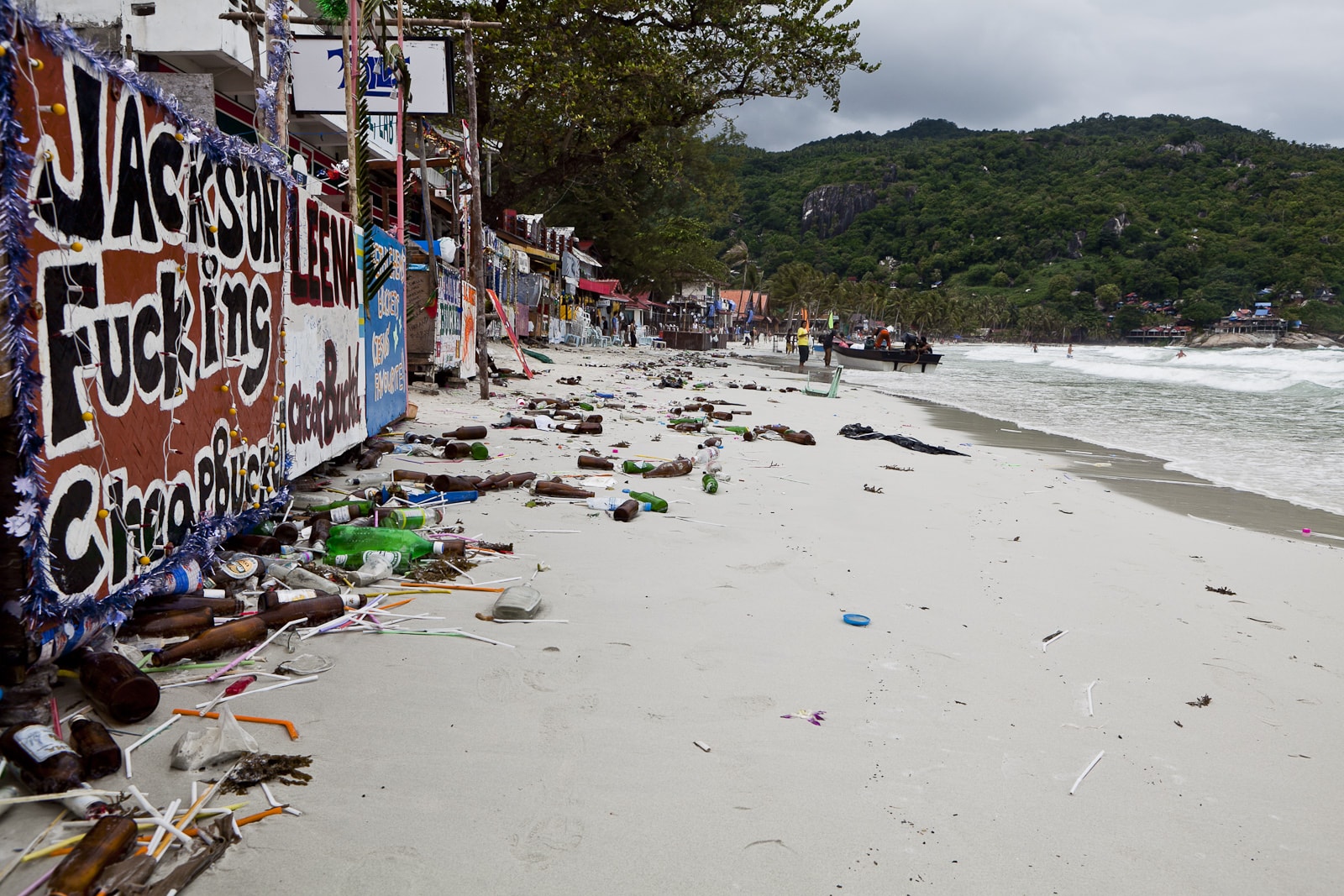Overtourism is a new concept for many people; therefore, learning how to prevent overtourism is too. Tourists come from all corners of the world, yet, not every place has tourists.
In 2018, international tourist arrivals (the number of people traveling) reached 1.4 billion.

The World Tourism Organization predicted we wouldn't reach that number for a few more years.
Compare this number to 1995, when there were only 525 million tourists worldwide, and you can see where we're headed.
More affordable flights and travel combined with increases in personal wealth have made it possible for more and more people to travel for fun. It's a trend that's both wonderful and potentially harmful and threatening, too.
The term “overtourism,” believed to have developed in 2015, is used to explain crowded tourist destinations and their negative impact on the surrounding communities and cultures.
Overtourism is an idea that encompasses all the negative impacts of tourism.
It explains the conflict between foreign visitors and locals, which has reached a boiling point in some places.
Overtourism can also explain the impact of the industry on struggling natural environments. This is seen, for example, in Thailand, or, more specifically, Maya Beach.
Very few people knew about Maya Beach on Koh Phi Phi in southern Thailand until the Hollywood blockbuster “The Beach” starring Leonardo Decaprio made Maya Bay the most popular destination in all of Southeast Asia.
Since it was released in 2000, tourism on Maya Beach has exploded.
It is reported that, at one point, more than 5,000 visitors were frolicking on the beach each day, delivered by more than 200 boats. In turn, the beach suffered a significant environmental loss.
Over 80 percent of the coral around Maya Bay has already been damaged, and government officials in Thailand hope closing the beach to visitors indefinitely will bring it back to life.
As travelers, it is our job to leave a community exactly how it was when we arrived.
Zero-impact travel is what we should all strive for unique places to remain available to future travelers.
Thailand is far from the only place affected. The Inca ruins of Machu Picchu in Peru and the sinking city of Venice in Italy are two more threatened sites.
Below, we have highlighted different ways you can become more conscious of overtourism. We challenge you to do your part to help the bigger cause.

Table of Contents
How You Can Help
1. Pay attention to local signs
It is simple. If the sign says, “stay off the grass,” don't step on the grass.
If the sign says, “do not feed the wild animals,” don't do it.
If the sign says “no photography inside the cathedral,” don't try to sneak a quick photo when no one is looking.
These signs are made for a reason, and usually, it is to protect yourself, the environment, and the culture.

2. Travel in the off-season
Traveling in the fall or winter months will not only mean fewer queues to deal with, but you will also be going at a time when prices are lower.
Dave, for example, re-visited Italy last fall. He said the prominent landmarks like the Florence Duomo and Ponte Vecchio bridge were still busy but not nearly as crowded as they would've been in summer.
Another reason to travel in the should or off-season is that locals will be more willing to strike up a conversation as they haven't been wrestling with hordes of tourists all season.
In some destinations, such as Switzerland, a sheet of snow over the landscape brings out the real magic and makes photographs even better. Who wants to spend a vacation in lines, anyway?
This is where you may need to do a little research, as the months that constitute off-season travel vary depending on where you want to go.
Related: Travel Switzerland on a Budget
3. Reconsider hostels/hotels
Did you know over 40 percent of vacation apartments in Barcelona are operated illegally?
That is because greedy landlords have realized tourists are willing to pay much more than residents.
Searching for the cheapest accommodation possible, tourists have begun to stop looking in the direction of hotels, which isn't necessarily a good thing.
Sure, spending locally is always good (see #6). However, it makes housing a nightmare for locals, driving rent prices through the roof and creating more friction between tourists and locals.
Barcelona is not the lone exception to this issue. Combat this growing problem by reconsidering going back to the hostels or hotels.
Leaving a place as it was when you arrived is your responsibility, but have you ever considered doing more than the minimum?
What about leaving the beach with less plastic than you brought?
Instead of blaming others, go the extra mile, and help compensate for others' neglect.
If every traveler picked up just one piece of litter a day, it would go a long way.
Whenever I go on a hike, I always bring a trash bag for loose trash on the trail, and, in most places, I can fill it up before my walk is finished.
5. Look past the first page of Google
The truth about travel blogging is that it exists on the internet, and some people lie online.
Have you ever considered why every small town or village you have read about is “quaint,” “paradisiacal,” or “unexplored?”
How every tropical destination is excellent for snorkeling, and its beaches are “pristine” and “secluded?”
These are easy, safe, and unmeasurable ways to write about places we have never been.
I am a part of the problem in travel blogging as I've used these unjustifiable descriptions to convince readers they must go to the most visited destinations in a city.
Admittedly, I have written articles that clients ask me to write about attractions I have never visited.
They have asked me to write about the top ten attractions on TripAdvisor, for example. In turn, this leads to the promotion of the same few attractions in the city.
[Editor's note: Go Backpacking only publishes stories based on an author's first-hand experience in a destination.]
The world is big. Be open to exploring it independently on a whim and based on the recommendations of blogs.
6. Spend your money locally
Backpackers have historically been good about this, if for no other reason than it's often cheaper to eat locally than at international chains.
Instead of eating at McDonald's, try the local street food across the way. Sure, easy!
However, tour companies have gotten sneakier at disguising themselves as homegrown companies when, in fact, they have roots worldwide.
One of my favorite things is the free city walking tours offered in most major cities worldwide.
Though a few popular companies, like Sandeman, operate in most cities, they are unique in that all proceeds go to the local guides themselves.
Not only that, but they can save you a pretty penny for your wallet, too.
Most local guides know secrets you can't find on the internet and will take you to places you wouldn't have known about had it not been for taking the walking tour.

7. Be aware of cultural sensitivities
Do your research about the culture before you leave for your destination. This seems like a dying process among all travelers.
With affordable travel and increased tourism worldwide, it feels like you can travel to a destination and never cross paths with a country's culture. How tragic.
Immersing yourself in culture and participating in traditions and lifestyles from across the world is what makes travel such a valuable experience. Let's get back to our roots.
Among cultural sensitivities to be aware of, religion is of utmost importance.
To air on the safe side, the less skin you show, the less like a tourist you will appear, and the less likely you are to offend anyone.
Be conservative in public, cautious about voice level and language, and try to blend in as much as possible. After all, that is a common goal for travelers, isn't it, still?
8. Do your research
Before Leo made Maya Beach a phenomenon, Koh Phi Phi was just one of the 1,400 Thai islands.
Think about it — despite what people may tell you, there are still gems out there that the internet hasn't discovered: islands that haven't lost their culture, beaches that don't have vendors walking the shoreline, and streets without tour buses.
However, if you keep following the “Top 10 Destinations in ____” lists, you will not find those places.
If you read it on the internet, so did thousands of others. Try doing some research and exploration on your own.
[Editor's note: Yes, we've also published our share of “Top X” lists on Go Backpacking. While we don't believe there's anything inherently wrong with a list format, we'll keep the problem of overtourism in mind as we draft the content of such articles in the future.]
Let's tackle overtourism together before it's too late
No matter which country — in which community — we are traveling, we have a responsibility (which everyone is now aware of) to be conscious travelers.
That means taking control of our actions, thinking before we act, and making decisions to better the place we are visiting.
If everyone does their part to be a more responsible traveler, we can fix this issue ourselves — without closing beaches indefinitely or irritating locals to the point of conflict.
Let's get a grip so we can prevent overtourism before it gets further out of hand.
Dave is the Founder and Editor in Chief of Go Backpacking and Feastio. He's been to 66 countries and lived in Colombia and Peru. Read the full story of how he became a travel blogger.
Planning a trip? Go Backpacking recommends:
- G Adventures for small group tours.
- Hostelworld for booking hostels.

